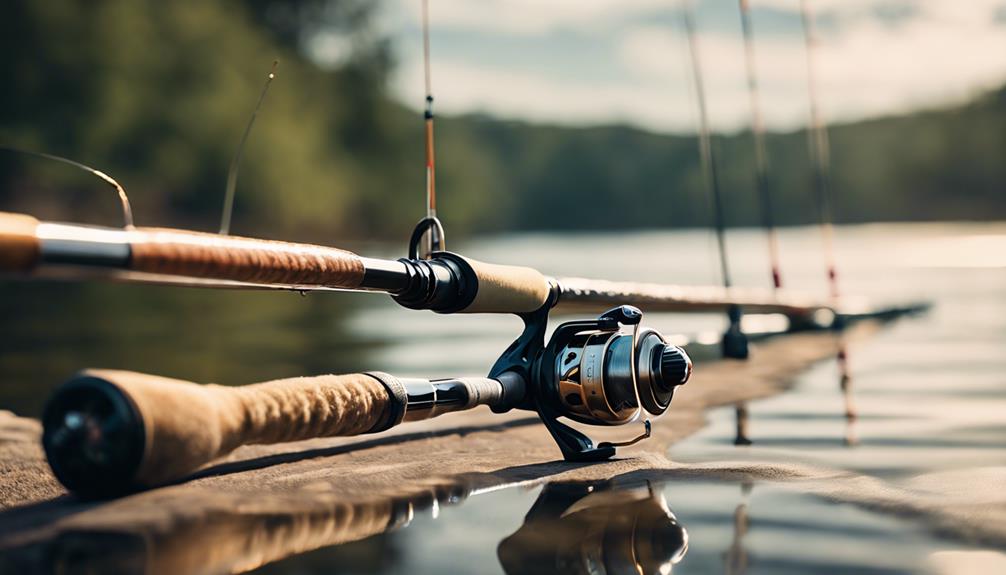Fishing is a beloved pastime for many individuals, providing both relaxation and an opportunity to connect with nature. However, before you cast your line, it’s essential to understand the regulations surrounding fishing licenses. In this comprehensive guide, we will discuss how to get a fishing license, ensuring you have the necessary information to enjoy your fishing adventures legally and responsibly.
Understanding the Importance of a Fishing License
When you ask, “How do you get a fishing license?” it’s crucial to first understand its importance. A fishing license is a legal requirement in most states and countries, designed to regulate fishing activities and protect aquatic ecosystems. By obtaining a license, you contribute to conservation efforts, ensuring that fish populations remain sustainable for future generations. Additionally, having a fishing license can help avoid hefty fines or legal troubles, allowing you to enjoy your fishing experience without worries.
Researching Local Fishing Regulations
The first step in answering the question, “How do you get a fishing license?” is to research local fishing regulations. Fishing laws can vary significantly from one location to another, including the types of licenses available, fishing seasons, and specific rules regarding catch limits. Start by visiting your state’s fish and wildlife agency website, where you can find detailed information about fishing regulations in your area. This research will not only inform you about the licensing process but also provide insights into the best times and locations for fishing.
Choosing the Right Type of Fishing License
Once you understand local regulations, the next step in the process of how to get a fishing license is to choose the right type. Fishing licenses typically come in various forms, including resident, non-resident, senior, and youth licenses. Some states also offer specific licenses for different types of fishing, such as saltwater or freshwater fishing. Consider your fishing habits and frequency to select the license that best suits your needs. Additionally, check if your state offers a one-day or week-long license for occasional anglers, which can be a cost-effective option.
Gathering Necessary Information and Documentation
Before applying for your fishing license, it’s essential to gather all necessary information and documentation. Most states require personal details such as your name, address, and date of birth. You may also need to provide identification, such as a driver’s license or state ID, especially if you are applying for a non-resident license. Some states may require proof of completion of a fishing education course, particularly for youth licenses. By having all required documents ready, you can streamline the application process and avoid delays.
How to Apply for a Fishing License Online
With the necessary information at hand, you can now proceed to apply for your fishing license. Many states offer online applications, making it convenient for anglers to obtain their licenses from the comfort of their homes. Simply visit your state’s fish and wildlife agency website, navigate to the fishing license section, and follow the prompts to complete your application. Keep in mind that online applications may require a credit or debit card for payment, so be prepared with your payment information.
Alternative Methods: In-Person and Mail Applications
If online applications are not your preference, you can still ask, “How do you get a fishing license?” through alternative methods. Most states also offer in-person applications at designated locations, such as sporting goods stores, bait shops, or local fish and wildlife offices. This option allows you to receive assistance from staff, who can answer any questions you may have. Additionally, some states provide the option to apply for a fishing license by mail. Check your state’s regulations for specific instructions on how to complete a mail application, including payment methods and required forms.
Understanding Fees and Validity Periods
As you navigate the process of obtaining a fishing license, it’s essential to understand the associated fees and validity periods. Fishing license fees can vary widely based on your residency status, the type of license, and the duration of validity. Some states offer annual licenses, while others have short-term options. Be sure to review the fee structure on your state’s website to understand what you will need to pay. Additionally, take note of the expiration date of your license to ensure you renew it in a timely manner, allowing you to continue enjoying your fishing activities without interruption.
Tips for Responsible Fishing and License Renewal
Finally, as you embark on your fishing journey, it’s crucial to practice responsible fishing and be aware of license renewal processes. Always adhere to local fishing regulations, including catch limits and seasonal restrictions, to contribute to the sustainability of fish populations. Additionally, keep your fishing license with you at all times while fishing, as you may be required to present it to law enforcement or wildlife officials. As your license approaches its expiration date, check your state’s renewal process, which can often be completed online or in-person, ensuring that you stay compliant and ready for your next fishing adventure.
In conclusion, understanding how to get a fishing license is a vital step for any angler. By researching local regulations, selecting the right license, and adhering to responsible fishing practices, you can enjoy a fulfilling fishing experience while contributing to the conservation of aquatic ecosystems. Whether you choose to apply online, in-person, or by mail, having the proper license will enhance your fishing adventures and ensure that you are fishing legally and responsibly. Happy fishing!
